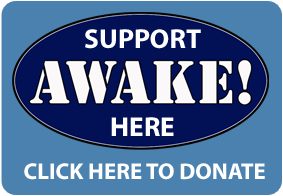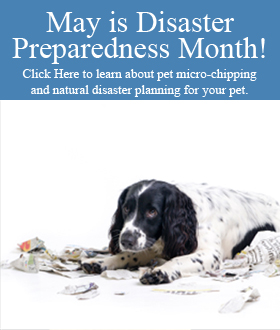Hillsborough Animal Health Foundation & Hillsborough County Veterinary Medical Society Announce AWAKE! As a New Initiative To Help Improve Animal Welfare
AWAKE! Is the Program Veterinarians Support To Lower the Euthanasia Rate & Protect the Overall Health of Community
Tampa, FL – The Hillsborough Animal Health Foundation (HAHF) and Hillsborough County Veterinary Medical Society (HCVMS) are announcing a new answer to help lower the euthanasia rate of unwanted animals and improve the general welfare of all our furry friends. The new solution is called AWAKE! You can read the details of AWAKE! here.
AWAKE! is a comprehensive approach to animal issues in Hillsborough County and represents four major components: Animal Welfare, Adoption, Kids (health), and Education. These four elements are the focus of the overall plan to reduce euthanasia and improve the welfare of companion animals in Hillsborough County.
The HAHF and HCVMS are committed to ensuring the AWAKE! solution:
1) Does not compromise long standing public health principles;
2) Does not impact overall animal welfare;
3) Does not increase the risks to children and other high risk groups;
4) Protects diverse wildlife species.
AWAKE! has two immediate initiatives:
First initiative: To support adoption plans, a Public Service Announcement (PSA) starring “Genna and Buddy,” two friendly animated pets who have some news for the pet lovers of Hillsborough County, has been released. This segment focuses on the importance of adopting a pet from a local shelter or veterinarian. The announcement commenced on August 8th and will be running for the next six weeks on Bright House and Verizon cable systems. To see the PSA, visit the HAHF website at www.hahf.org .
“As Hillsborough County continues to improve its animal control policies, focus on the adoption of pets to good homes is vital,” says Don Thompson, Executive Director of HAHF. “The overpopulation of pets will not be solved overnight, and this public service announcement is designed to help increase adoption rates in Hillsborough County.” Participating veterinarians are always happy to find pets forever homes and are offering a free post-adoption exam for any pet adopted from the local shelter or veterinarian. These exams, provided within 7 days of the adoption, are important to ensure a clean bill of health for the newest family addition. A list of participating veterinarians can be found at www.hahf.org.
Second initiative: One particular concern amongst veterinarians involves the management of feral cats. The proposal from feral cat advocates is to utilize trap-neuter-release (TNR) as a county funded and sanctioned solution to address this difficult challenge. As experts in both animal health and welfare (as well as their effects on public health), the veterinary community is unable to support any government funded policy of TNR for feral cats in Hillsborough County. The Florida Department Of Health (FDOH), the Centers for Disease Control (CDC) and the veterinary community believe that the release of thousands of cats every year into our environment endangers human health. The veterinary community is also concerned about the health of our pets, local native wildlife and the welfare of the cats themselves.
Recognizing the county’s desire to address the feral cat challenge, HAHF & HCVMS are recommending a hybrid approach combining increased adoption efforts, kitten programs, foster families, and limited scope “sanctuaries” as an alternative to Trap, Neuter and Release (TNR) programs. The veterinary community wants to participate in a long term solution that benefits all citizens of the community, including feral cats. “We believe a hybrid program that includes the principles of Trap – Evaluate – Neuter – Vaccinate – Adopt (plus foster/kittens) – Contain (sanctuaries) makes the most sense and takes into consideration all the relevant concerns.” says President of the HCVMS, Christy Layton, DVM.
To begin that process, the veterinary community will be launching a pilot sanctuary project within the next few weeks. Funded by the contributions of local veterinary hospitals through the HAHF, this pilot will begin the process of improving the welfare of feral cats. “Through the combined efforts of the cat rescue groups, Animal Services and the veterinary community, we can solve our feral cat challenge without endangering public health and other wildlife species,” says Thompson.





































